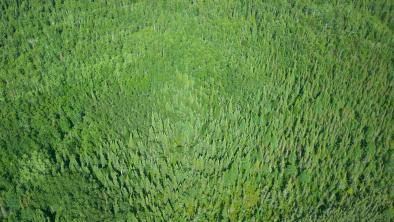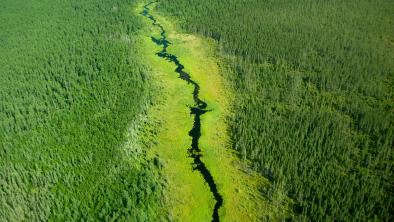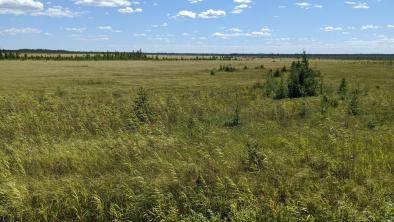Peat mining issue remains contentious; months yet until announcement is made
The Interlake Enterprise

Some expected that Manitoba Conservation and Water Stewardship Minister Gord Mackintosh would be announcing the decision on the awarding of peat mine licences sometime in November. However, a call to Interlake riding MLA Tom Nevakshonoff clarified the question.
Once all the details of the provinces new “peat stewardship strategy” have been hammered out, those licensing decisions will be announced.
“The province is not committing to any specific timeframe, but it is months, not years,” Nevakshonoff said.
In coming up with the peat stewardship plan, the province has been meeting with numerous groups: industry stakeholders, cottagers and local Aboriginal and non-aboriginal communities, many of them with opposing views on the issue of peat mining.
Some of the factors being considered by the province are the impact of peat mining on habitat, water protection and how to reclaim the land after harvesting, among others.
The issue has become contentious. Three main sectors emerge with their own concerns.
There are those who support peat mining because, they argue, it will bring economic benefits to their communities in the form of jobs.
Others oppose peat mining on environmental grounds. This is a diverse group, including ordinary citizens, cottage owners, environmentalists and tourism promoters.
First Nations groups argue that the proposed mines are situated on traditional lands and they want to determine how the lands are managed. They favour a conservationist approach and even go so far as to say they will block roads if mining proceeds, according to Peguis band councillor Mike Sutherland.
“The destruction [from peat mining] is immense and irreversible,” said Sutherland. “If you look at [areas that have been mined], there isn’t a green leaf to be found.”
Sutherland added that peat mining would destroy moose habitat. He puzzles over the province’s approach of issuing peat mining licences on the one hand and calling for the preservation of moose habitat on the other.
Nevakshonoff admits that the issue is a difficult one, likening it to being between the horns of a bull politically.
“There’s not too much middle ground, so it seems. It’s always difficult to come to an equitable decision when faced with these sorts of issues,” the Interlake riding MLA said.
“We value their opinions [of First Nations] highly. It’s going to be one of the factors in play when the government comes to a decision at the end of the day,” Nevakshonoff said. “We do have a duty to consult, but ultimately the government has to decide one way or another.”
The Wilderness Committee, Canada’s largest wilderness preservation organization, has gathered more than 2,000 signatures in opposition to the peat mining and forwarded them to the province this past summer.
Committee spokesperson Eric Reder says that the long term ramifications of mining vastly outweigh any of its economic benefits. He raises the question of how people can justify destroying ecosystems when peat mining is a totally unnecessary industry.
“Peat is not something that we need to mine, and it has a big impact on carbon. What’s my kid going to do 30 years from now?” Reder said in a telephone interview last month.
Reder, who has rural roots, understands where small community leaders are coming from on this issue.
“I come from the country. I have family from Moosehorn,” said Reder. “I know what economic development means to small communities.”
Reder argues that peat mining provides only a small economic opportunity. The proposed peat mining expansion would employ 125 people across 10 operations, and, furthermore, provides only seasonal employment.
Biologist Heather Hinam, who owns property in the Helca-Grindstone area, concurs. She has studied peatland eco-systems extensively and has detailed the many years it would take for such an eco-system to recover.
Hinam calls the benefits of peat mining “short-term gain for long term devastation.” Hinam agrees that any jobs arising from the proposed peat mining expansion will only be seasonal, short-term jobs.
“They’ll be gone in 20 years. It will make problems for everybody down the line, like the fishers,” she said. “Most of these guys [the mining companies and decision-makers] will be dead before the real problems would start.”
Many leases were issued to peat mining companies years ago, but Nevakshonoff says that, despite the fact that companies have paid fees to retain leases “for years and years”, and in some cases invested capital into development plans, holding a lease does not entitle a company to open a mine. Environmental assessments and a consultation process must first be undertaken.
Nevakshonoff explained during previous interviews that many of the leases were taken out on speculation. However, he said that if all that land were to be mined, it simply would be unsustainable.


